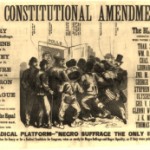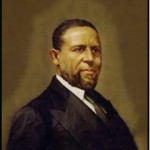by Cheryl Eldridge
Recognition of Black History originated in 1926 by historian Carter G. Woodson as “Negro History Week.” It was later celebrated as Black History Month. Woodson chose the second week of February because it marked the birthdays of two Americans who greatly influenced the lives and social condition of African Americans: former President Abraham Lincoln and abolitionist and former slave Frederick Douglass.
Until the study of Black history, Blacks were absent from history books. Carter G. Woodson established the Study of Negro Life and History in 1915, and a year later founded the widely respected Journal of Negro History. “Negro History Week” was intended to bring national attention to Black people’s contributions throughout history.
Other important dates in February that align with a study of Black History are:
• 2/23/1868 – W.E.B. DuBois was born – civil rights leader and co-founder of the NAACP
• 2/03/1870 – The 15th Amendment was passed – allowing Black men to vote
• 2/25/1870 – The first black U.S. senator took office (Hiram Revels).
• 2/12/1909 – The NAACP (National Association for the Advancement of Colored People) was founded.
• 2/21/1965 – Malcolm X was shot













